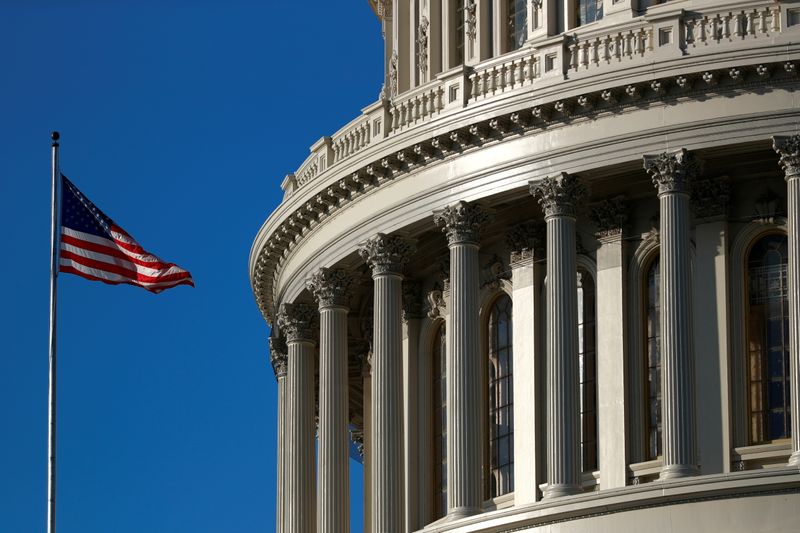By David Lawder and Chris Prentice
WASHINGTON (Reuters) - Senior Democrats said on Sunday that they will likely need to scale back President Joe Biden's $3.5 trillion social spending bill while passage of the linked bipartisan infrastructure bill may slip past a Sept. 27 deadline.
House Speaker Nancy Pelosi also may delay sending the $1.2 trillion infrastructure measure after House passage to the White House for Biden's signature until the larger spending bill passes, House Budget Committee Chairman John Yarmuth told "Fox News Sunday" - a move aimed to ensure that moderate Democrats support the bill.
Their comments illustrate the difficult path Democrats face in passing Biden’s sweeping agenda with razor-thin majorities and staunch Republican opposition. Tempers are high within the Democratic caucus, with moderate and progressive wings of the party sharply divided over the scale of spending.
Democrats also face looming October deadlines to fund the government and raise the federal debt ceiling. Failures on either part could deal a blow to the economy and hurt the party's standing with voters.
Asked about the amount of the "reconciliation" tax-hike and spending bill on childcare, education and green energy, Yarmuth said he expects that the bill's top line number "will be somewhat less than $3.5 trillion."
Representative James Clyburn, the third-ranking House Democrat, told CNN that the number could be lower.
"So it may be $3.5 (trillion), it may be really close to that or maybe closer to something else. So I think that we ought to really focus on the American people to think about what takes to get us in a good place and then let the numbers take care of themselves," Clyburn said on the "State of the Union" program.
Democrats aim to pass the massive spending plan without Republican support under budget reconciliation rules and cannot afford to lose any Democratic votes in the Senate and only three votes in the House.
Moderate Senate Democrats including Joe Manchin and Kyrsten Sinema say $3.5 trillion is too much; Manchin suggests spending less than half that. Meanwhile, some progressives Democrats in the House say they cannot support a bill with lower spending levels aimed at bolstering the middle class.
Clyburn said that "it's going to take some work" to bring Democrats together to support a bill, but added "I believe in our party and our leadership."
The $3.5 trillion spending package https://www.reuters.com/world/us/paid-leave-clean-energy-preschool-democrats-35-trln-plan-2021-08-09 aims to support American families with free community college, universal preschool, an extended Child Tax Credit and investments in clean energy. But it also comes with major proposed tax hikes https://www.reuters.com/article/usa-biden-infrastructure-taxes/factbox-key-elements-of-u-s-house-democrats-tax-hike-plans-to-fund-biden-spending-idUSKBN2G922S on the wealthy and corporations.
Pelosi has sought to delay House passage of bipartisan infrastructure bill as leverage to ensure that moderate Democrats support the social spending bill. But House Democrats set a Sept. 27 deadline for passage of the infrastructure bill as part of a budget resolution and the larger spending bill is not yet ready for vote.
Yarmuth said the infrastructure bill could still pass, but leverage could be preserved if Pelosi holds it back from Biden's desk and signing it into law.
He said that this can be done under legislative rules. "She can hold on to that bill for a while. So there's some flexibility in terms of how we mesh the two mandates."
Yarmuth said the Sept. 27 deadline would likely be missed, with passage of the infrastructure bill slipping "sometime into early October would be my best guess."

Yarmuth said he would also advocate folding a debt ceiling hike into a normal appropriations measure or the reconciliation plan, but "I don't think that decision has been made yet. We have several options for raising the debt ceiling, which is absolutely mandatory."
Senate Republican leader Mitch McConnell has said his party will not support a debt ceiling increase, even though the Treasury has warned that it will exhaust its cash and borrowing capacity sometime in October, leaving the U.S. government unable to pay all of its obligations.